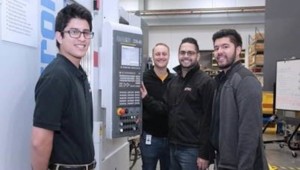Is America ‘Post-Education’?

There’s a lot of finger-pointing going on when it comes to education. It seems like education is getting more publicity than ever. It’s everyone’s new political platform darling, it’s making headlines in the evening news, and everyone has an opinion. These opinions are loosely forming into various camps and rather than seeking to provide practical solutions that will drive change in school systems, far too many are getting bogged down in negative, inflammatory rhetoric. We’re stuck into an either/or mindset rather than acknowledging that the most powerful learning outcomes will come from an ‘and’ mentality.
Some feel threatened by self-paced learning modules or they question the validity of learning when done outside the purview of an expert. Others believe the classroom is entirely ancillary, archaic even. Why should relics of the past such as bells and schedules determine who learns what, when, and where? Some feel the move to charter schools spells the death knell for public education, despite the mild irony of the sentiment. Others look at the perpetual cycle of failure in some institutions and see no other way. The list goes on.
Ideologically, we are divided. Unfortunately, what many have chosen to disagree about is the form of school. What we should be talking about is the purpose of school. Do schools exist to replace parents? Are schools arbiters of moral and cultural values? Do schools exist to impart facts, figures, and data?
I propose that we are a nation attempting to rewrite the subscript of the very purpose of our educational system. There are many players in this arena that have, unfortunately, decided to lump all of the complexities of what happens to children between ages 4 and 22 under the single heading of “education.” The truth I think we need to address is that we are post-education. Education today doesn’t look anything like it used to 15, 20, or 30 years ago. We can argue if that’s good or bad, but all that matters is that we are able to use education to serve the purposes it has been established for, changing though they may be.
We’re post-education, but nobody really knows what that means yet. We hear all the buzzwords like MOOCs, flipped learning, and blended learning, but we can’t seem to decide if these are foundationally different pedagogies or just the next educational fad. All we know at this point is that change is painful. We’re blazing a trail in the wilderness that is the 21st century. We’re hungry, we’re tired, and maybe a little cranky at times. But it’s time we can stop and remember that, ultimately, we all want our children to be successful. We all want to see our nation excel. We all understand, deep down, that this is a tough, complex issue that is more about the journey than the destination. Excellence, after all, isn’t about arriving but understanding that you are aiming at a moving target. But until we decide on the very foundational purpose of schooling, the rest is just nostalgia.






0 Comments
Leave a Comment
Your email address will not be published. All fields are required.